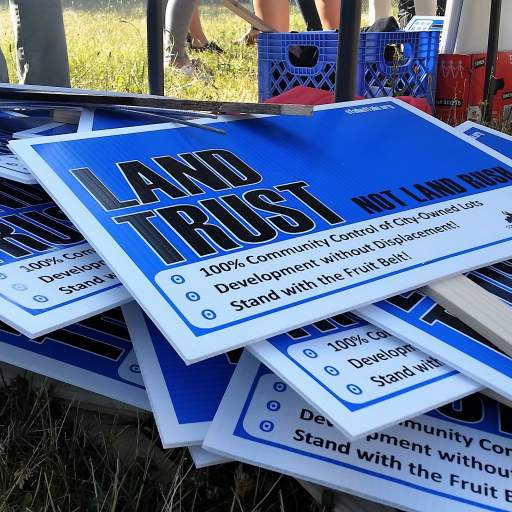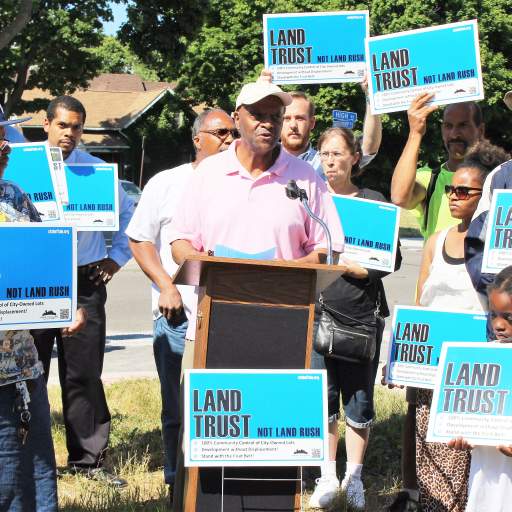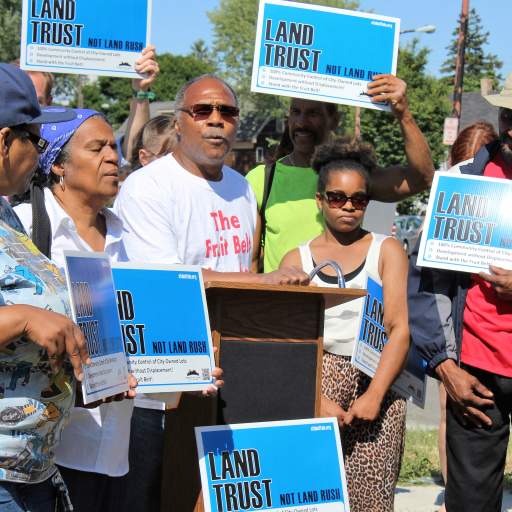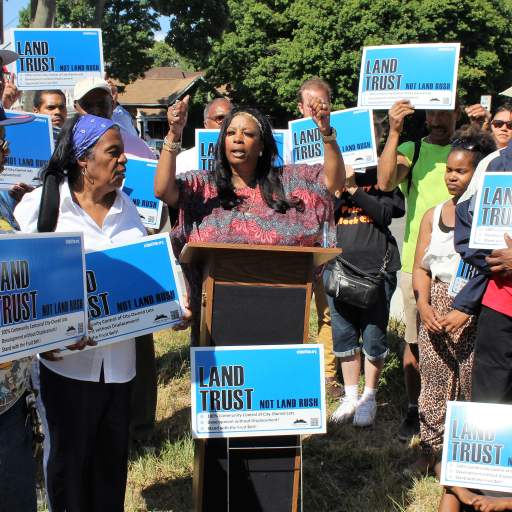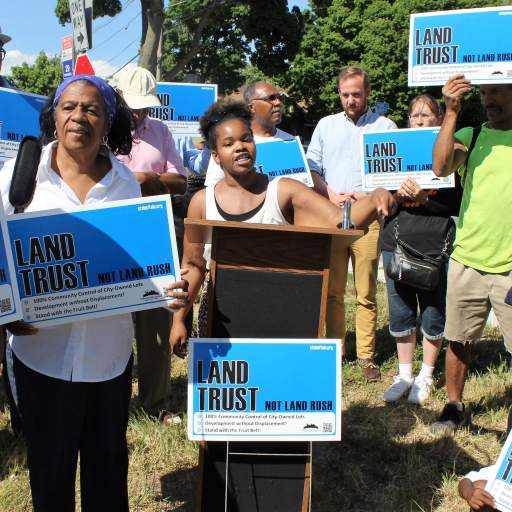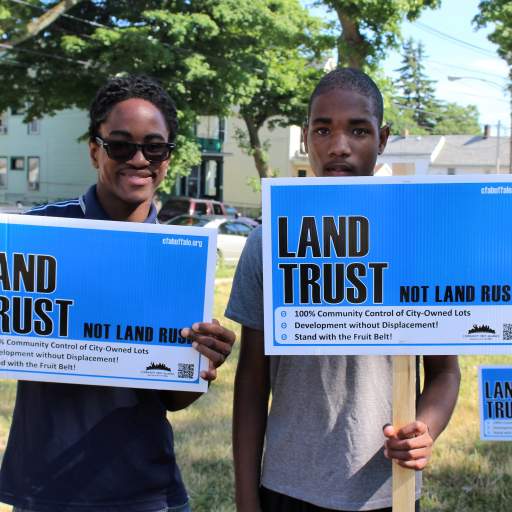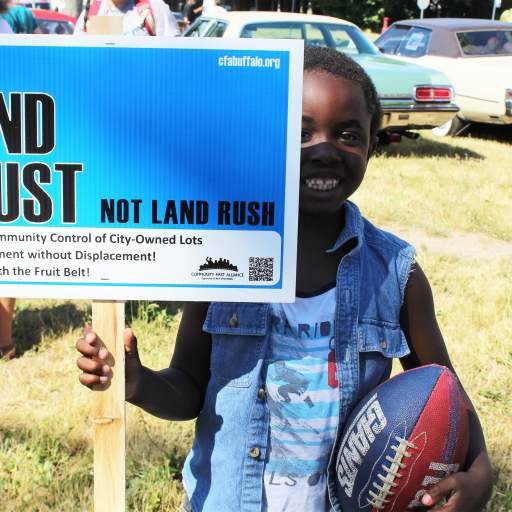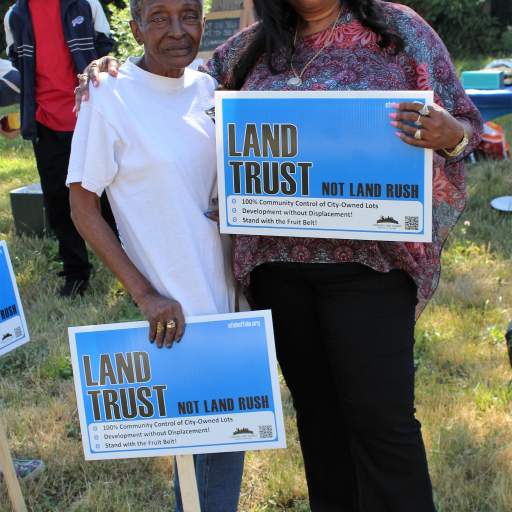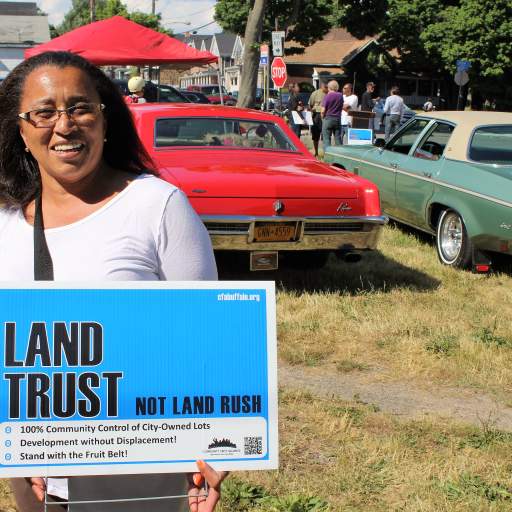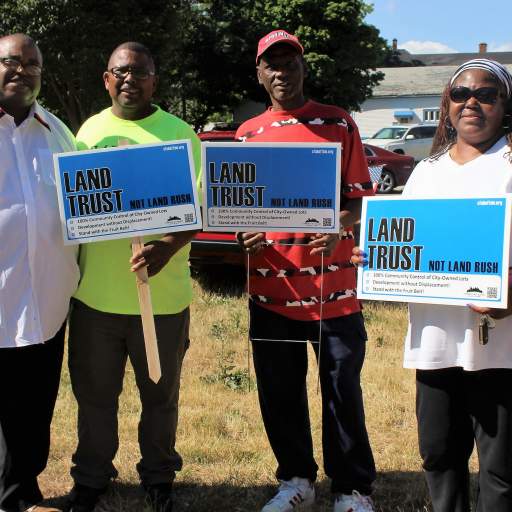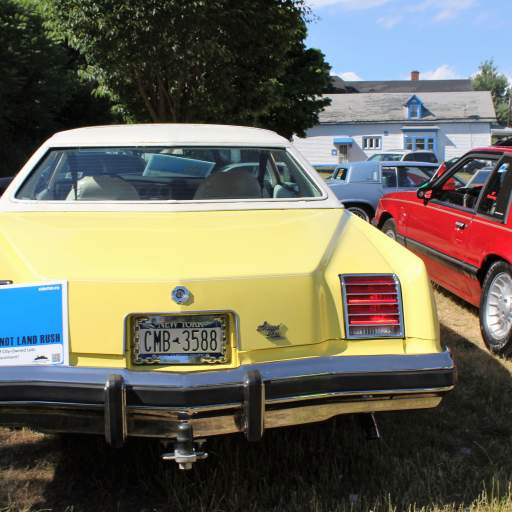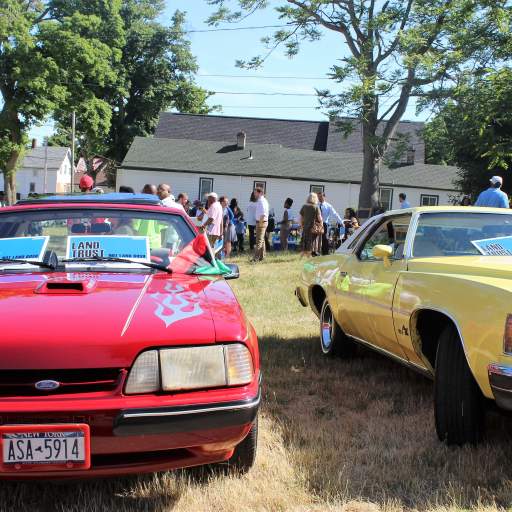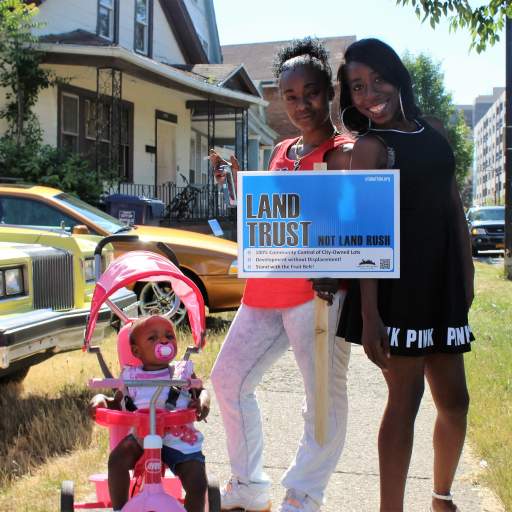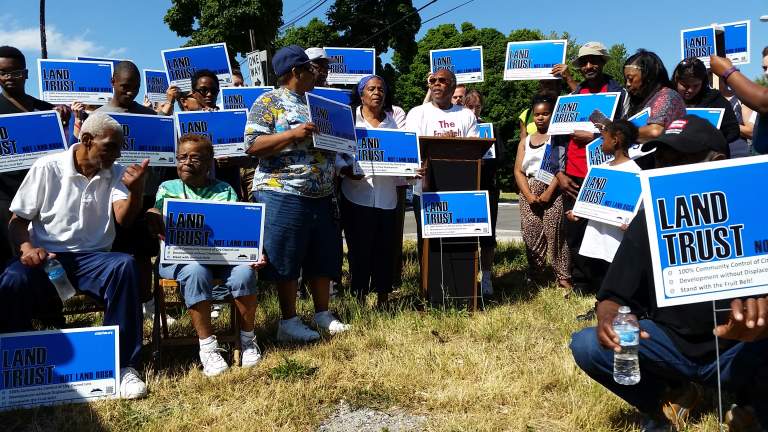
At a June 22 press event/community cookout, allied neighborhood groups proposed community control and revitalization of hundreds of vacant lots in the historic Fruit Belt neighborhood.
“Land Trust, Not Land Rush” Puts Spotlight on 200-Plus Vacant Lots in Fruit Belt
Published June 22, 2016
BUFFALO – Hundreds of unoccupied properties in Buffalo’s Fruit Belt neighborhood hang in the balance between speculators’ profits and community self-determination.
On Wednesday, June 22, at 4 p.m., the Community First Alliance (CFA) hosted a  press conference and community cookout that drew attention to the 200-plus city-owned lots in the historic Fruit Belt and highlighted the need for city officials to work with residents to create a community land trust. Fruit Belt neighborhood leaders and other CFA partners (from across Buffalo) also unveiled research-based strategies for community control and revitalization of this property.
press conference and community cookout that drew attention to the 200-plus city-owned lots in the historic Fruit Belt and highlighted the need for city officials to work with residents to create a community land trust. Fruit Belt neighborhood leaders and other CFA partners (from across Buffalo) also unveiled research-based strategies for community control and revitalization of this property.
“We want to make it clear that we as a community want, and should have — 100 percent community control over the city-owned lots,” said Deborah Scott, a fifth-generation Fruit Belt resident. “Despite the fact that a community land trust has been prioritized by Fruit Belt leadership and the residents living in the community, this anti-gentrification strategy has only recently made it into the city’s strategic planning document, and even then it only says it should be ‘considered,’ not created immediately.”
Wednesday’s event also marked the release of A Plan that Bears Fruit: A Community Land Trust and Other Tools for Neighborhood Revitalization in the Fruit Belt, prepared by Partnership for the Public Good (PPG), a CFA research partner. This document details how creation of a land trust could ensure direct public control of neighborhood plots and ensure permanent affordability of housing.
“Fruit Belt residents asked us to examine how other neighborhoods were able to benefit from development without displacing their longtime residents,” said Steve Peraza, a policy analyst with PPG. “Our policy brief looks at best practices nationwide, and highlights the community land trust as one tool that residents can use to protect the character and affordability of the Fruit Belt while still welcoming residential and commercial development.”
Added Harvil Hill, president of the Fruit Belt Advisory Council, “We call on the city of Buffalo to stand with us for the good of the Fruit Belt, to protect this historic neighborhood and preserve its most important resource — its residents. Development should be good for the residents of the Fruit Belt. control the land and we control our future!”
